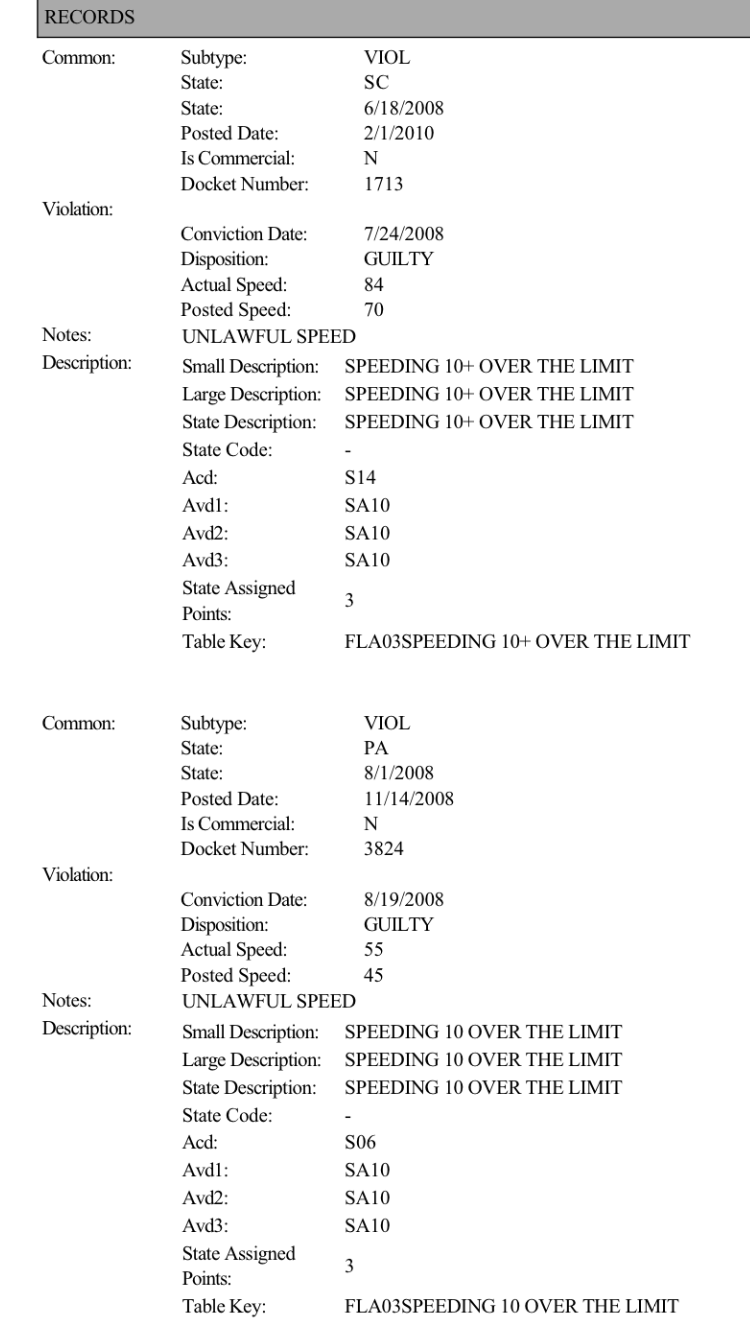- Joined
- Apr 20, 2015
- Messages
- 5
- Reaction score
- 14
- Points
- 4,581
- Pre-Medical
I was recently accepted to a medical school, and while finalizing my decision, I received a notification that my background-check came back positive for misdemeanor speeding (which I didn't disclose earlier), and I must now go before a special CBC-committee to defend myself.
I was under the impression that med-schools didn't need/want information about minor infractions like speeding, but I guess I was wrong. Should I just say that I wasn't aware we had to disclose this type of information? Am I in danger of possibly losing my seat, or this just a simple formality?
EDIT:
Okay, so clarification.
I was aware we had to disclose misdemeanors (as its plainly stated on both AMCAS and Secondary Applications), I just wasn't aware that my infraction, when it occurred, was recorded as a misdemeanor.
When my background-check came back indicating the infraction, it had been months since I had read my apps/terms, and when my eyes passed over the speeding designation (46 in a 35), I just immediately thought, "minor traffic infraction you are repeatedly told to ignore", and didn't seem to register the "misdemeanor" category it fell under.
After submitting the report to my school, its pretty clear this is a problem. I'm going to be honest (even if it makes me look a little absent-minded). It was my responsibility to make sure that all prior infractions weren't misdemeanors, and I should have read the background-report more carefully. I'll try to emphasize that this was a moment of carelessness, rather than a deliberate attempt to mislead the school about a speeding ticket.
I was under the impression that med-schools didn't need/want information about minor infractions like speeding, but I guess I was wrong. Should I just say that I wasn't aware we had to disclose this type of information? Am I in danger of possibly losing my seat, or this just a simple formality?
EDIT:
Okay, so clarification.
I was aware we had to disclose misdemeanors (as its plainly stated on both AMCAS and Secondary Applications), I just wasn't aware that my infraction, when it occurred, was recorded as a misdemeanor.
When my background-check came back indicating the infraction, it had been months since I had read my apps/terms, and when my eyes passed over the speeding designation (46 in a 35), I just immediately thought, "minor traffic infraction you are repeatedly told to ignore", and didn't seem to register the "misdemeanor" category it fell under.
After submitting the report to my school, its pretty clear this is a problem. I'm going to be honest (even if it makes me look a little absent-minded). It was my responsibility to make sure that all prior infractions weren't misdemeanors, and I should have read the background-report more carefully. I'll try to emphasize that this was a moment of carelessness, rather than a deliberate attempt to mislead the school about a speeding ticket.
Last edited:


